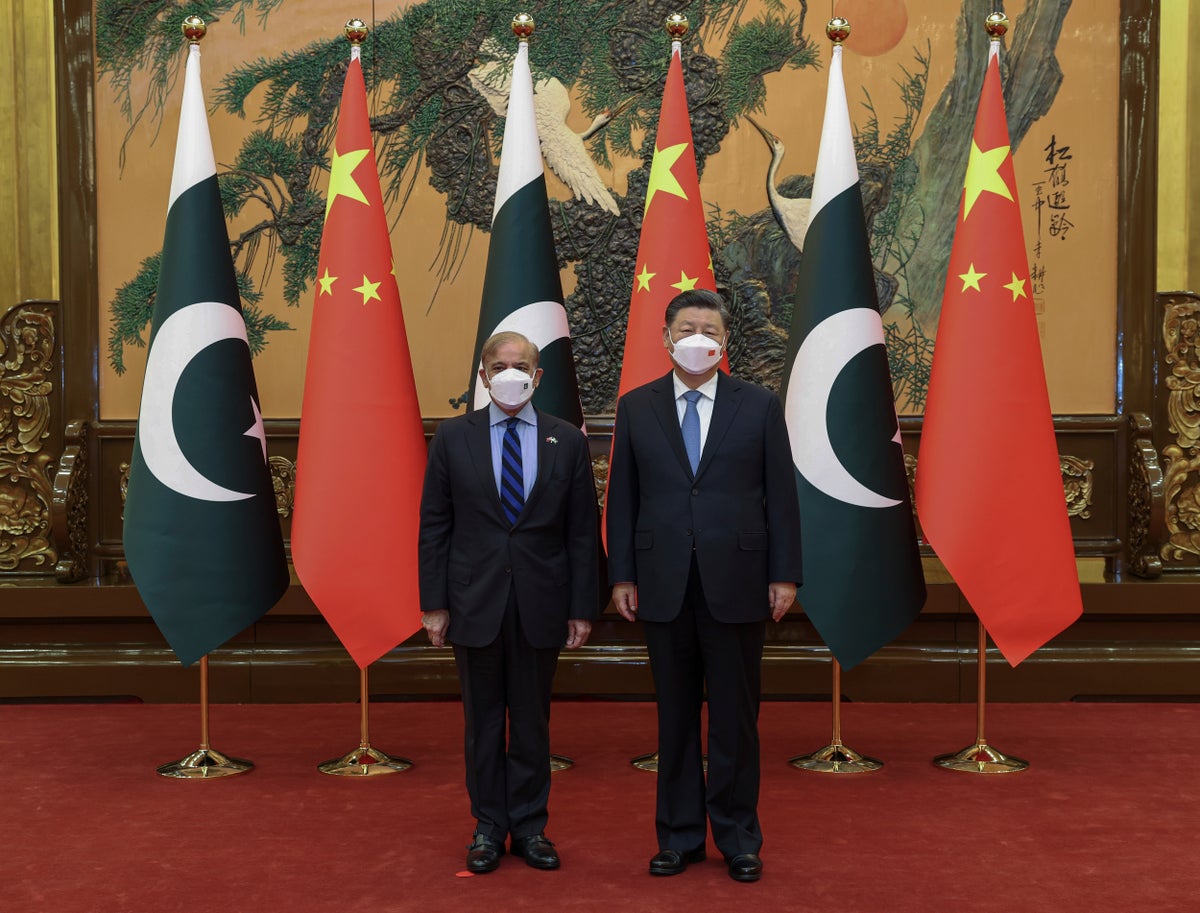
Chinese President Xi Jinping on Wednesday affirmed his country's commitment to invest in Pakistan despite obstacles created in recent years by security concerns and the global economic slowdown.
Xi cited the “all-weather strategic partnership” between the countries during a meeting in Beijing with newly elected Pakistani Prime Minister Shahbaz Sharif, according to the official Xinhua News Agency.
Beijing and Islamabad have ties dating from the Cold War, in part due to their mutual tensions with India, with which China has a lengthy disputed border that sparked a 1962 war and more recent clashes. Pakistan and India have fought repeatedly over the Muslim majority Himalayan territory of Kashmir.
China has committed tens of millions of dollars to build power plants and other infrastructure in Pakistan, and Xi pointed to transport links to the Arabian Sea port of Gwadar and in the southern trade hub of Karachi as key elements in that effort.
Pakistan is a main link in Xi's sprawling ”Belt and Road Initiative" that aims to build and connect ports, railways and roads to expand trade in a vast arc of countries across Asia, Africa and Europe.
Thousands of Chinese workers have been deployed to the project, although not all Pakistanis have welcomed their presence. In April, three Chinese nationals and their Pakistani driver were killed when their van was blown up by a suicide bomber.
The Chinese fatalities included the director of the Chinese-built Confucius Institute, which offers Chinese language graduate classes, and two teachers. The Baluchistan Liberation Army, a militant group in nearby Baluchistan province that includes Gwadar, claimed responsibility for the attack.
The Pakistani Taliban has also targeted Chinese interests in the past, including an attack on a bus last year that killed nine Chinese nationals in Pakistan’s northwestern Khyber Pukhtunkhwa province. Four Pakistanis also died in that attack.
Xi touched on the security issue, saying he was “highly concerned about the safety of Chinese in Pakistan, and hopes Pakistan can provide a reliable and safe environment for Chinese institutions and personnel carrying out cooperation in Pakistan."
In a statement, Sharif's office said he thanked Xi for “China’s invaluable assistance to Pakistan’s relief, rehabilitation and reconstruction efforts in the wake of devastation caused by super floods in the country."
It said the sides agreed to speed up projects and discussed extending Chinese investment in Afghanistan.
Peace and stability in Afghanistan, which has teetered on the verge of economic collapse since the Taliban seizure of power last year, would “promote regional security and economic development," Sharif's statement said.
“There was complete unanimity of views between the two leaders," his statement said.







